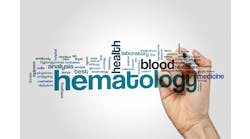Although 235-bed Kingman Regional Medical Center is located in rural Mohave County, Ariz., it is implementing some fairly sophisticated population health solutions, including a data lake to provide a more holistic view of the patient journey.
In a recent interview, KRMC Interim CIO John McDaniel said it’s true that Kingman Regional is a small rural hospital, “but I don't think they've ever thought of themselves that way. The executive leadership at Kingman understands the value of IT. The CEO often refers to IT as the heart of the organization, because it's all about data. That is one of the reasons I took this position.”
Recent population health efforts have included closing care gaps by using registry data from the Meditech EHR. KRMC reported more than doubling outreach metrics for patient care between encounters through a nurse navigator position and use of wellness, diabetes, and hepatitis C registries. They closed half of their identified gaps after using registries to manage chronic conditions for patients.
In addition, patient experience ratings increased from just over 76 percent in April to a final score of 86.58. This is significant because KRMC’s reimbursement for Humana patients stands to increase from just under $8 per member per year to over $21 by reaching a rating of 85.44 percent.
“We have identified several areas, including social determinants of health data, as well as being able to stratify among disease segments, and we try to manage those more appropriately,” McDaniel said. “It became evident with our patient population that we could do a better job with diabetes management, for instance. We are working to effectively improve the health and lifestyle of our community as well as improve the quality of our care and actually save dollars because we are able to continuously treat those patients and manage their care in lieu of having them show up in the hospital ER, randomly.”
KRMC is creating a data lake of all relevant information about the patient from Meditech, as well as some of its other clinical applications, so that it will have a single point of view of all health history. “We're also starting to look at the capture and aggregation of patient-related data from personal health devices, as well as medical devices,” McDaniel said, “so we will have a single view of everything going on in that patient's health life today, including social determinants of health data, to hopefully keep them healthier.”
The work involves a partnership between the chief medical officer, IT and ambulatory departments. “The CMO is heavily involved and is a real proponent of using data to effectively manage and/or predict potential disease states,” McDaniel said. “We primarily took advantage of the Meditech tools for registry reporting. We can provide that information to our nurse navigators so that they really could manage the continuity of care for that disease population.” The nurse navigator was a new role established in the last year for that purpose, he added.
KRMC also has changed how it does reporting by creating a centralized executive dashboard to serve as a single data model guiding financial, clinical, and organizational decisions. “While the project is not complete, we used the 80/20 rule that 20 percent of that dashboard information would be relevant to managing 80 percent of our organizational costs and patient population,” McDaniel said, “so we will focus on that 20 percent and we're starting to pick others off as time permits.”
For the population health work, KRMC was recognized by the statewide health information exchange, Health Current, with its 2021 Health IT Innovation Award, which honors innovative use of health information technology for better care, improved outcomes, and lower costs.
“The Health Current HIE has probably been the best source of information sharing that we have,” McDaniel said. “We're also implementing some additional technologies that will be compliant with CMS as a requirement for information blocking, and information sharing, that will allow us to dynamically capture information about patients being seen elsewhere or patients we've seen who need to be followed up with by physicians outside the organization. So we've really focused on the whole concept of vendor interoperability and information sharing and information aggregation.”
Moving forward, McDaniel said he would like to move more applications to the cloud, but infrastructure is an issue. “We have issues with our ISPs. We have two major ISPs in the Kingman area, and they use the same pipe,” he said, “so the last mile for us to get from here to a PoP [point of presence] is really challenging. We're starting to look at ways we can address that, because I want to move more of my applications to the cloud. The data lake that I referred to needs to reside in the cloud.”
KMRC also is implementing a patient communication and interactive hospitality system for patients in the hospital in conjunction with an RFID solution that will let clinicians know where that patient is at all times. “In addition, we are in the process of rebuilding our data center. We were about 10 years behind with our technology there, so rebuilding that infrastructure is key.”


